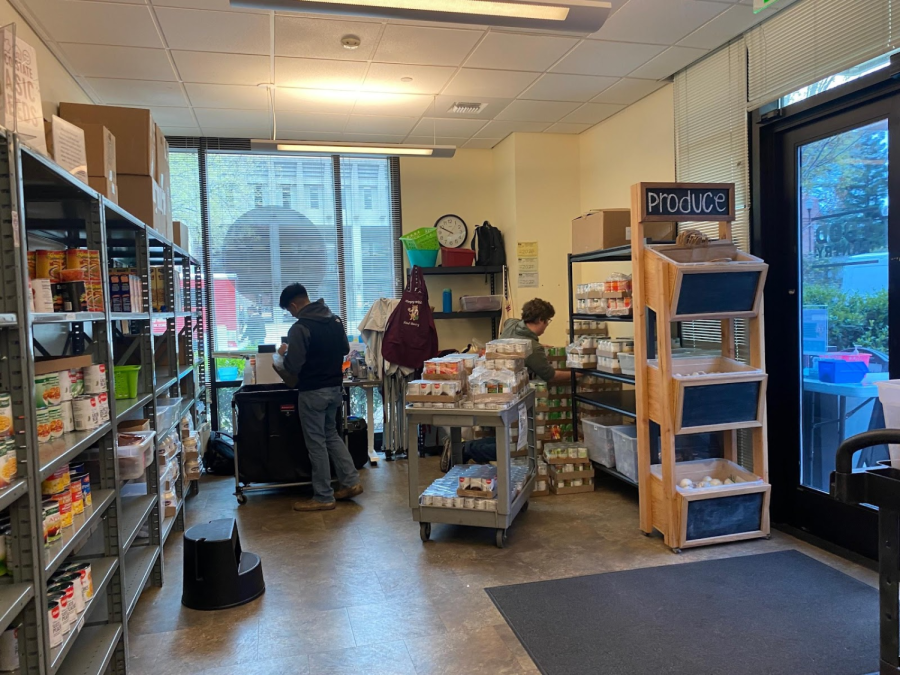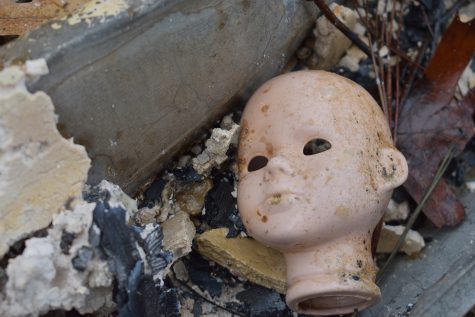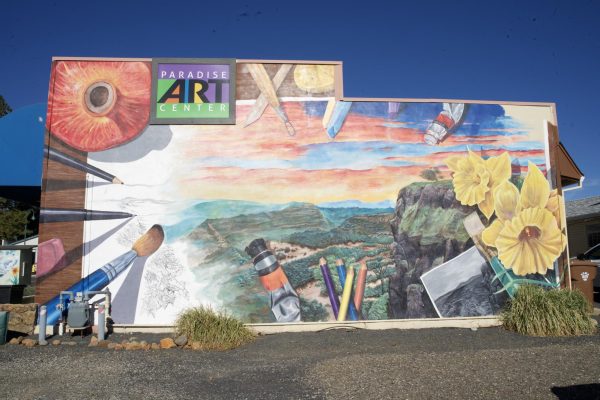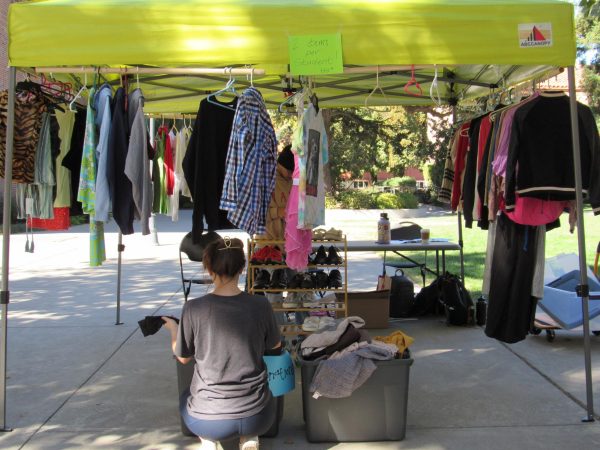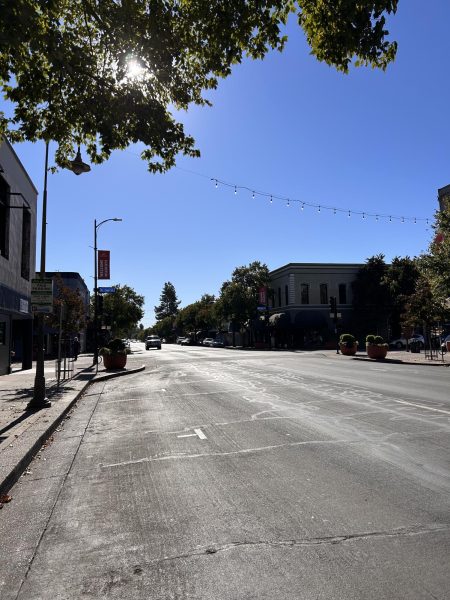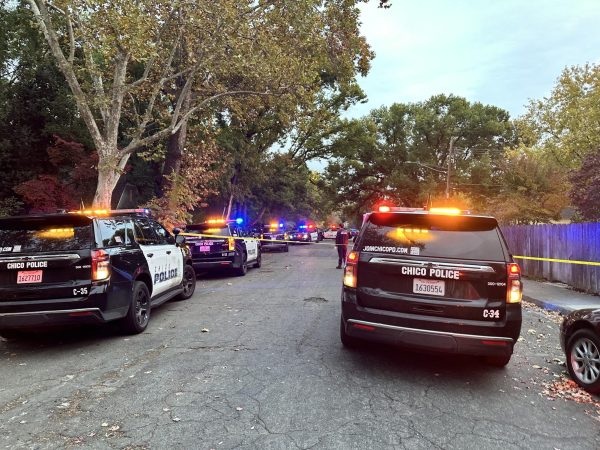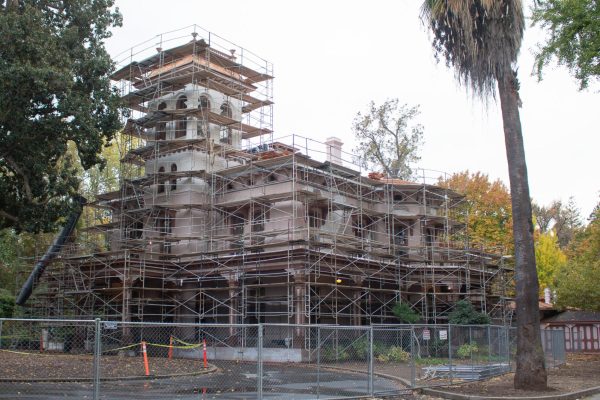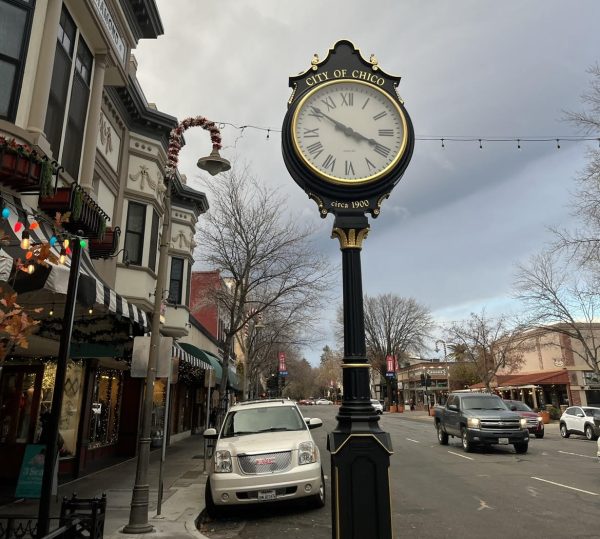One Decade of the Hungry Wildcat Food Pantry
Current office manager and founder, Kathleen Moroney, reflects on the last 10 years of service at the Hungry Wildcat Food Pantry.
Before the pantry’s existence, Maroney received a phone call from a professor. The professor said a student working three unpaid internships had trouble paying attention in class due to hunger.
“There were many staff members keeping food in their drawers to feed students and referring people to the Jesus Center,” Moroney said.
She realized the university needed a food pantry.
At the time, Moroney’s main goal was to start collecting food and figure out how they could set up a pantry for students.
According to a national database, the monthly cost of groceries for college students in California is $265.
In a California State University research survey in 2018, they found that 50% of Chico State Students experienced low to very low food security.
Wanting to provide a welcoming and friendly environment to those facing food insecurities on campus, Moroney opened the doors of her office in 2013.
“I loved having students come to my office,” Moroney said. “There was a stigma around food insecurity, so I wanted to eliminate that stigma and normalize it.”
However, the pantry faced many challenges following its launch.
“At the beginning they were very shy and they didn’t want to take too much,” Moroney said.
In addition, the administration and community failed to see the importance behind the project early on, so, “It was frustrating trying to get this started or accomplished when the administration wasn’t seeing the need,” Moroney said.
A big question was also raised during this time: “We are here to teach students. Is it our job to feed them?”
With a lack of support from administration, Moroney had a hard time starting and accomplishing the pantry, but with the help of Chico State President Gayle E. Hutchinson, the food pantry started getting the support they needed.
“When Gayle Hutchinson came to campus she heard about it and was so supportive,” Moroney said.
Now, with 10 years of aiding students and staff, Moroney is amazed at how far the pantry has come.
“It is mind blowing, it is amazing to see what we have now with the space, the programming, the case management, the funding from the legislature is amazing to see that.”
Not only does it provide food, but the pantry also supplies students and staff with hygiene products, menstrual products, baby food and much more.
In comparison to when it first opened up, the school is now more involved and supportive.
Chico State’s sororities and fraternities donate canned food, student athletes participate by hosting food drives every year and the pantry works hand-in-hand with the university farm, buying vegetables, receiving meat and more.
The community also plays a role in assisting the pantry.
In Chico State’s Basic Needs Report and 2023 Fact Sheet, its food partners include:
- Feeding America
- Regional food banks
- Food rescuers
- Local pantries
- Student and community organizations
- Regional farmers
- Businesses and more than 2,000 individual donors.
The report also states they distributed enough food to make 144,000 healthy meals the previous year.
Basic Needs Manager Leah Slem says so far this year they have served around 5,000 students and staff, and are projecting to serve 7,000 people in total.
The future is also looking bright for the pantry, as they have now received funding for a new freezer and refrigerator to hold inventory.
Moroney looks back at all they have accomplished and says she is fulfilled with the pantry. She encourages students to reach out if they are facing food insecurity or lacking basic necessities.
In response to those who are afraid to reach out, Moroney said: “I just want to let them know it’s okay. That we’re here for you and this is why it’s here.”
Milca Chacon can be reached at [email protected].




